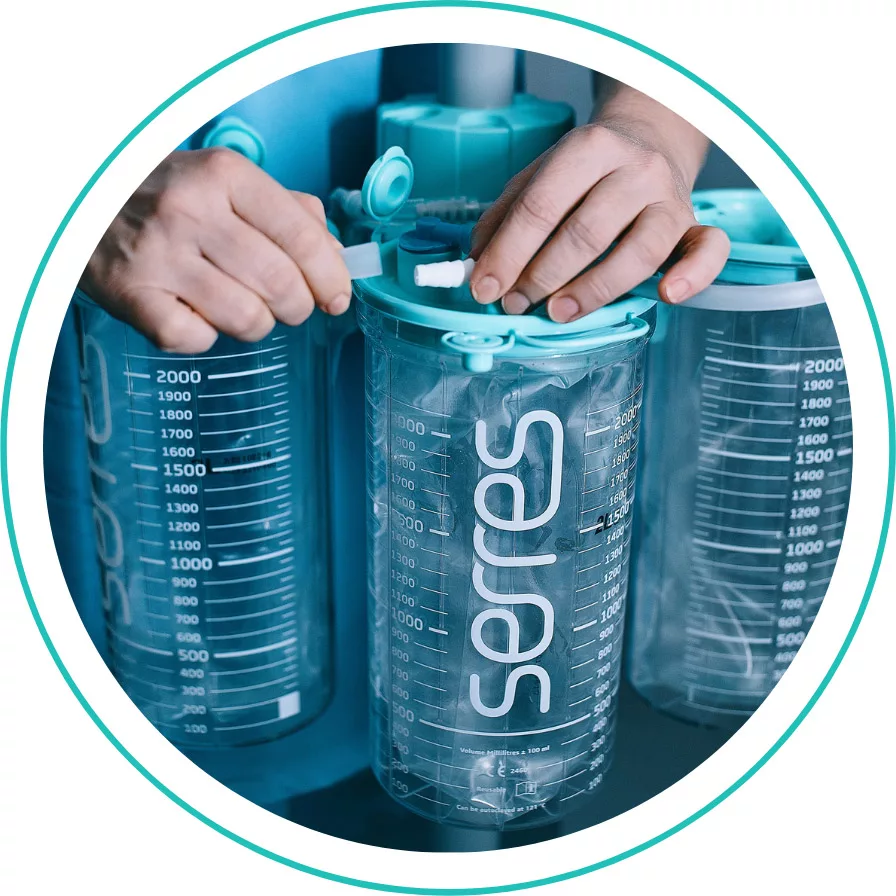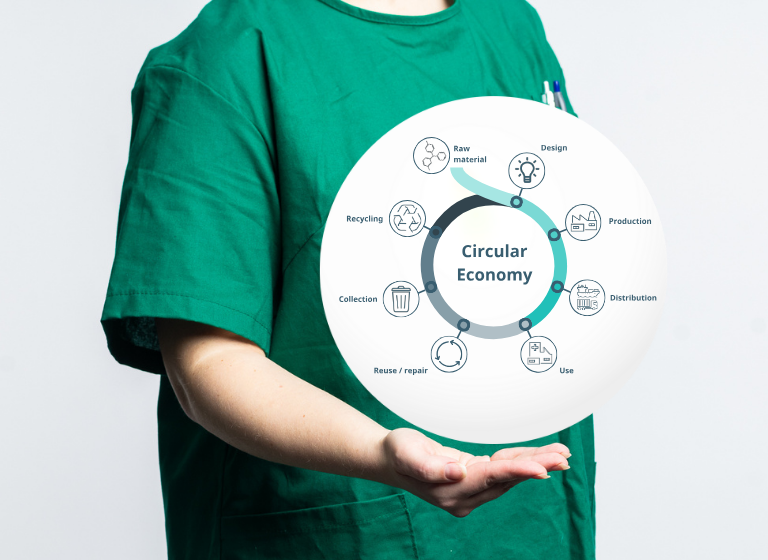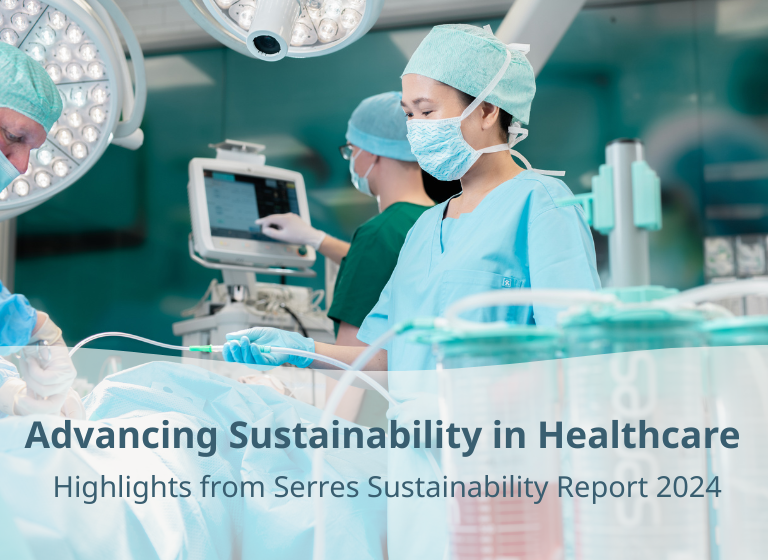Towards More Sustainable Healthcare: A 5-Step Approach to Decreasing Carbon Footprint in Hospitals

The health sector plays a significant role in global greenhouse gas emissions, accounting for nearly 5% of the total emissions worldwide. This figure can be as high as 10% in some high-income nations (¹).
Alarming projections from the World Economic Forum suggest that the CO₂ footprint of the health sector could triple by 2050, if no major measures are taken to mitigate its environmental impact (²).
The root of the issue lies in the wide supply chain associated with healthcare, including the production, transportation and disposal of pharmaceuticals and medical devices. A staggering 71% (¹) of the health sector’s emissions can be attributed to these supply chain activities, underlining the need for more sustainable approaches.
Operating rooms may contribute up to 25% of hospitals carbon footprint
The day-to-day activities within healthcare facilities play an important role in increasing their carbon emissions. Operating rooms are especially energy and resource-intensive environments, and their carbon footprint can make up a substantial portion, up to 25% (³) of a hospital’s total environmental impact. You can read more details about the environmental impact of the healthcare sector in our blog post.
Surgical fluid suction is an essential part of operating room procedures, as hazardous patient fluids must be managed in a hygienic way.
Our main product is a disposable plastic suction bag that is typically incinerated along with its contents after use. This process and especially the incineration of the suction bags with its content has a notable environmental impact.
Being fully aware of this, we strive to reduce our products’ impact on the climate.

To fully understand the environmental impact of our products and find innovative ways to reduce it, we conducted carbon footprint case study calculation on our 2-liter suction bag using a cradle-to-grave approach. You can read more about our LCA-calculation in our blog post.
Interestingly, we noticed five main areas where we, together with hospitals, could significantly save on CO₂e emissions.
Here are the 5 steps that can help hospitals decrease their carbon footprint:
Design and Amount of Materials Used in Producing the Suction Bag

Our suction bag is designed to be exceptionally light, which reduces CO₂e emissions in manufacturing, transportation, and disposal. The bags are made of thin, yet strong polyethylene film, which significantly reduces the plastic content compared to similar products.
Serres Suction bags are PVC free. Upon incineration, PVC contributes to environmental levels of dioxins, which are extremely toxic to humans and the environment.
Packaging efficiency and design
We’ve minimized the empty space in our packaging and optimized the package dimensions to maximize the number of packages that can fit on pallets, trucks, and containers. This ensures a more efficient and sustainable transport process.
Moreover, increased packaging efficiency also reduces the amount of packaging materials required and optimizes warehouse space utilization.


Outbound Transportation and Distance
We prioritize sea transportation for long-distance routes to reduce CO₂e emissions compared to truck or airplane transportation.
Our logistics are carefully planned to make full use of trucks by grouping orders to minimize shipment frequency.
Waste Management Practices
Our Serres Nemo suction bag disposal device allows hospitals to empty suction bags on-site in a hygienic manner, while significantly reducing the amount of waste generated in the process. Using Serres Suction bags and Serres Nemo, the amount of waste can be reduced up to 97%.


Waste Incineration
Incinerating suctioned fluids significantly increase CO₂e emissions – emptying the suction bags reduce up to 97% CO₂e emissions from the waste transportation to incineration.
By emptying the full suction bags in the hospital, minimizing transportation distance to the incineration site, using energy recovery in incineration and reusing plastic waste boxes, we can reduce emissions and costs.
Taking sustainability steps together with our customers
By adopting these measures, hospitals can significantly reduce their carbon footprint, making a meaningful contribution towards creating a sustainable healthcare system. We are committed to helping hospitals achieve this goal, and we believe that our products offer a viable solution.
We are constantly exploring new raw materials, including recycled and recyclable options, to maintain our leadership position in our industry and supporting hospitals in their path to carbon neutrality.
(¹) Climate change and health: three grand challenges | Nature Medicine
(²) https://www.weforum.org/agenda/2022/11/pharmaceutical-industry-reduce-climate-impact/


